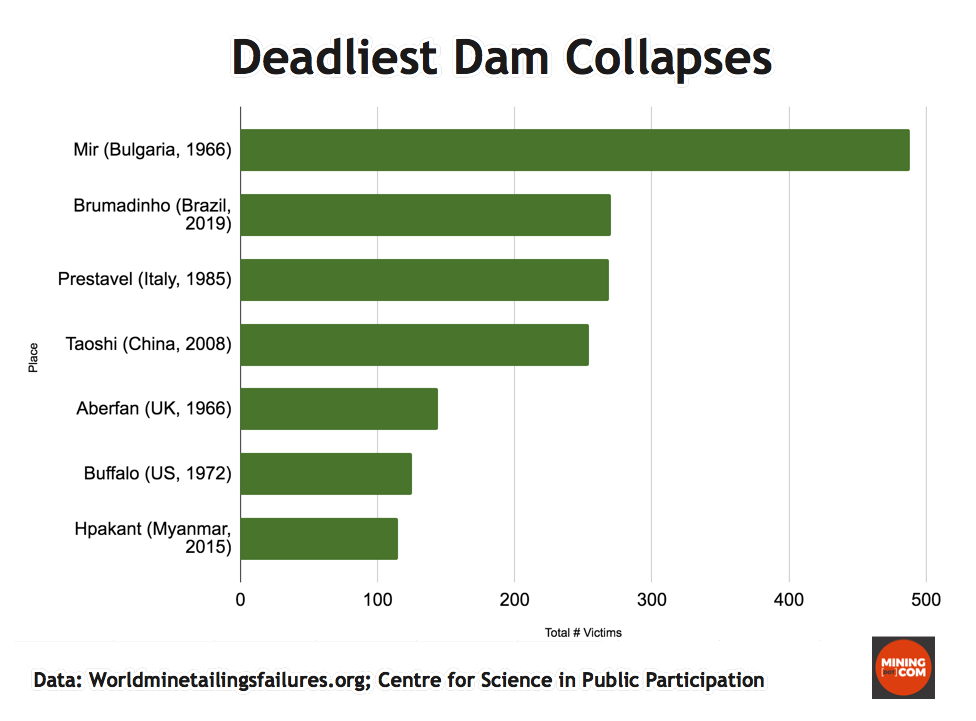China has launched a one-month probe into the country’s tailings dams after a spill at a molybdenum miner last month contaminated water supplies for the northeastern province of Heilongjiang.
Mining waste flowed out of a Yichun
Luming’s tailings storage facility in March, polluting water up to 110 km
downstream and forcing the company to halt production.
China’s Ministry of Emergency
Management and the Ministry of Ecology and Environment pledged on Friday to conduct
centralized investigations and treatment of hidden risks at tailings dams.
The inspections, they said in a jointly
held videoconference, will focus on facilities close to residential areas, out
of service for a long time, or likely to cause major environmental pollution along
the Yangtze River and Yellow River.
The announcement comes more than a year after a major tailings accident at Vale’s (NYSE: VALE) Brazil Córrego do Feijão iron ore mine, which killed 270 people and contaminated nearby streams.
In the past year, organizations and miners across the globe have stepped up efforts to set global standards for tailings damns.
Until then, there were no set of
universal rules defining exactly what a tailings dam is, how to build one and
how to care for it after it is decommissioned.
Previous effort in that direction
included the World Mine Tailings Failures, an online database aimed at
exposing the cause of tailing dams disasters, giving direction on how to
prevent them.
Only in the past year, however,
organizations and miners across the globe have stepped up efforts to set global
standards.
The International Council on Mining
and Metals (ICMM), a London-based industry group representing 27 major
mining companies, formed an independent panel of experts in charge of
developing global standards for tailings facilities.
The Church of England, which
invests in mining companies through its pensions for retired clergy, along with
its partners, launched in April 2019 a global inquiry into mining
waste storage systems of more than 700 resources companies.
It now asks companies to disclose data on tailings dams on a regular basis.

Switzerland-based Responsible
Mining Foundation (RMF) published
a study in early April, showing that investor-led action had resulted in
improved transparency regarding the state of such facilities.
The vast majority of miners,
however, have yet to demonstrate they are reviewing how effectively manage tailings-related
risks.
The non-profit, funded by the Dutch and Swiss governments and some small philanthropic organizations, said that while a global standard on tailings management is a welcome initiative, it could be significantly strengthened to become a real game-changer in terms of tailings safety.
China has nearly 8,000 tailings
dams, the most in the world.
